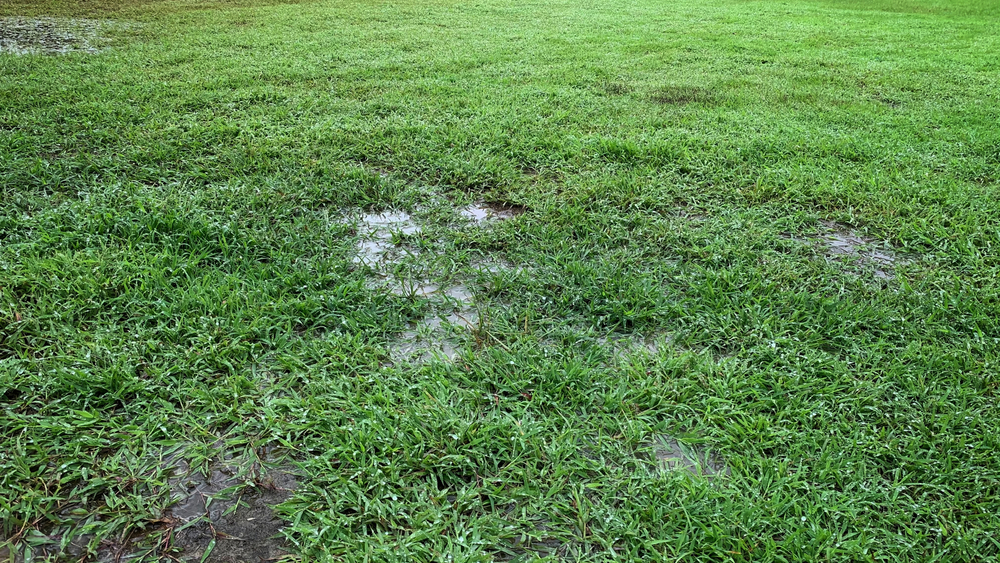You might be wondering if all the talk about “foundation inspection importance” is really necessary. Maybe you’ve lived in your home for years without any obvious problems. It’s a fair question to ask, is this really a big deal?
The truth is, a professional check of your home’s foundation serves as a safeguard for the structural integrity of a house. Understanding the importance of foundation inspections and putting that knowledge into action by scheduling one, is not an admission of a problem. It’s more about foresight and responsibility as a homeowner.
Why Regular Foundation Inspections Matter
Think of your home’s foundation like the roots of a tree. You may not always see them. But a certified foundation inspector helps make sure everything in your house stands.
Problems with a foundation can be subtle at first. But if you take care of a small crack from the get-go, then the whole foundation is able to be stronger. It ends up giving your structure more support.
Detecting Issues Early
One of the biggest reasons to get a foundation inspection is early problem detection. A professional, like those at foundation inspection service companies, can spot minor issues. Cracks and other trouble signs may become massive repairs over time.
For example, minor damage might seem insignificant. But visible cracks can widen over time, letting in moisture and affecting the structure of the foundation itself.
Protecting Your Financial Investment
Your house represents one of the largest financial commitments you’ll ever make. A solid foundation maintains, and can even increase, property values, Potential buyers see foundational issues as major concerns.
Having a recent foundation inspection report is a great feature to attract prospective buyers. A clear report will allow for an efficient sale. Having documentation shows the foundation is sound, addressing issues and concerns of a potential buyer before they are brought up.
Staying Safe at Home
Over time, foundation problems can lead to damage that threatens the stability of the house. This might cause things like sloping floors, walls beginning to lean, and difficulty with doors and windows to close properly. These structural issues pose potential dangers to anyone who lives inside your home.
Issues might also mean vulnerabilities when severe weather events come around. A solid foundation contributes to a safer home overall, and by addressing any concerns, it can assist with your family and property to stay protected.
Water Damage Risks
Water is a major enemy of foundations, especially in areas prone to heavy rainfall or other weather events. Over time, moisture issues can create many structural problems.
A qualified structural engineer can pinpoint areas that are vulnerable to water damage. An inspector may suggest simple drainage systems to resolve this problem.
What Happens During a Foundation Inspection?
So what does an inspector look at anyway? Understanding how to go about hiring for the right foundation inspection company is crucial. A reputable inspector will provide insights for your specific property type.
A visual inspection typically starts the process. This helps in identifying things that require closer attention or maybe repairs. Addressing issues found during this step is the primary reason to have a routine maintenance schedule.
The Inspection Process
First, the inspector visually examines the foundation inside and out. They’ll carefully assess every part of the home. The inspection will consider walls and spacing, while looking for visible signs of damage.
Next, they measure any cracks they find. Documenting the size of any fissures, where they are, and even how severe helps figure out what may need repairs, while also providing a detailed report outlining concerns.
Inside, they check for things like uneven floors or sticking doors and windows. Outside, the inspector looks for problems like a leaning structure or damaged foundation.
Finally, they’ll provide detailed reports. This way, it is simple to understand if your home needs foundation repairs or routine maintenance to prevent major structural issues down the road.
Understanding Common Foundation Issues
Several signs, visible both inside and outside the home, can signal foundation problems. Spotting them means addressing them before they escalate. This ends up extending the life of your foundation and saving money on potential expensive repairs.
Here’s a table outlining some common indicators:
| Indicator | Description | Potential Implication |
|---|---|---|
| Cracks in Walls/Floors | Visible cracks, especially wider than 1/4 inch. | Indicates foundation settling or movement. |
| Uneven Floors | Floors that slope or feel uneven. | Suggests foundation shifting or settling. |
| Sticking Doors/Windows | Difficulty opening or closing doors/windows. | Signifies foundation movement or changes. |
| Gaps Around Doors/Windows | Gaps between doors/windows and their frames. | Signals foundation settlement or shifting. |
| Cracks in Ceiling | Cracks, particularly those appearing suddenly. | Indicates a potential shifting foundation. |
| Bowing Walls | Walls lean inward. | Foundation issues are significant. |
Addressing these problems early helps protect the structural integrity. Simple improvements maintain the property value too. Having a professional perform a visual inspection to notice issues allows you the chance to get ahead of any severe weather that may compromise it further.
Choosing the Right Foundation Inspection Service
You may prefer to take care of it yourself and have it inspected by structural engineers. Most inspectors will not directly offer a repair for issues. However, specialized companies offer no-cost consultations and repairs directly.
Groundworks points out how experts who are active in doing repairs have a more grounded sense of any necessary fixes. Their expertise can be critical. A foundation inspection cost normally ranges in the hundreds of dollars.
Long-Term Cost Savings
Taking care of seemingly minor foundation issues can lead to substantial cost savings. Small issues, such as hairline cracks, are fixable with less money upfront when found quickly. Addressing concerns will give homeowners great financial security by preventing costly damage.
For instance, a minor crack might only need a simple sealant application. A foundation that is fully sinking could need much bigger fixes, and can become a very expensive repair. By neglecting foundation issues early on, the repair costs grow significantly.
Working with Foundation Repair Specialists
When you have a specialist, repairs happen fast and get directly at the core of a problem. Companies can create solutions and estimates for a foundation plan. This helps prevent potential issues and allows the property owner great peace of mind in knowing their property is safe.
FAQs about foundation inspection importance
Is foundation inspection necessary?
Yes, it’s a preventative measure. Checking over your home is critical for making sure that minor problems don’t get more costly down the road. Inspections add great value to your home.
Why is the inspection method important?
The right approach during an inspection helps detect specific issues accurately. The process involves spotting issues you maybe wouldn’t notice at a glance. Then there is opportunity for you to address the damage properly, which prevents more costly damage.
Why is it important to have an inspection?
Regular foundation inspections maintain the overall value of your property. These evaluations support the structure and foundation stability. Identifying things sooner, specifically within crawl spaces, ensures a well cared for home for decades to come.
What foundation issues are found during inspection?
Inspectors often find cracks, settling, mold growth, or uneven floors. Detecting these and other indicators helps prevent future damage to the foundation. The sooner you are aware of them, the quicker you can make an assessment for any solutions and address issues.
Conclusion
Understanding foundation inspection importance isn’t about becoming a home repair expert. It means recognizing that homes, just like people, need routine checkups to stay in top form. Property owners who schedule regular maintenance find their home is safer and the value is stronger.
Dealing with the small stuff while it is manageable prevents big headaches and big bills later. Scheduling inspections regularly lets your structure stand strong against things like a foundation crack or drainage issue that creates more cost and headaches down the line. If you’re selling a house, you want to make sure you know all of the information prior to dealing with potential buyers.




